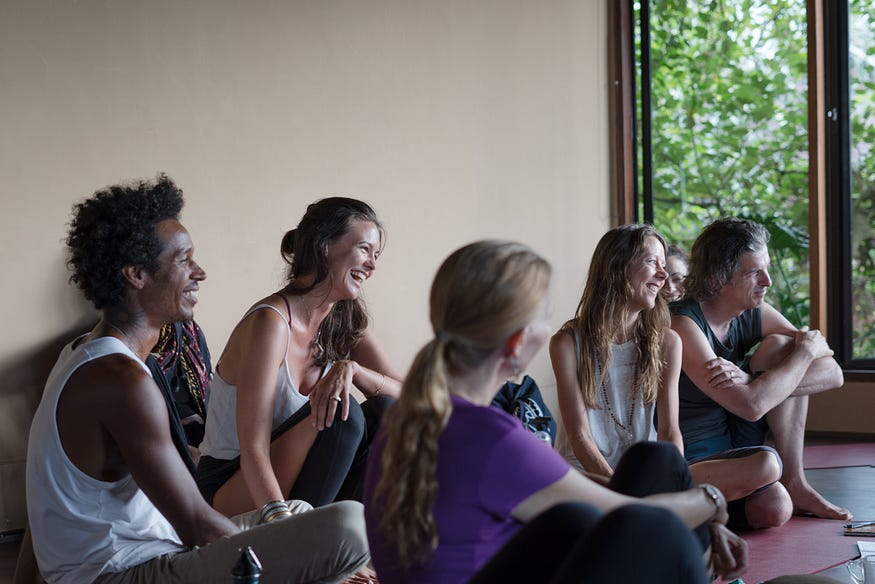Is Meditation Evil? | Mark Whitwell
Though meditation is often prescribed as part of a spiritual practice, in a very real sense, you, or I, or anyone, cannot meditate. My teacher Krishnamacharya pointed out that meditation is not a struggle within the mind but arises by grace, as a gift or result of asana. Think of sleep, which cannot be compelled but arises naturally and spontaneously. While you can make the conditions right for sleep, you cannot force it to happen. The same is true of meditation.
You may be familiar with a practice commonly known as raja yoga, prescribing a mental focus on and above the crown of the head as the place of “higher” realization. By fixing the attention there, one may indeed perceive unusual energies and lights. Yet this fixation is not meditation. In their commitment to an “ascended” life, these yogis — haloed like the images of Christian saints — attempt to go beyond the body but ignore what is most precious. The very means of opening the crown to ascending and descending forces is the opening of the whole body in its natural intimacy of others.
Do your yoga — your asana, your intimacy — because it is an infinite pleasure. Afterwards, you may wish to take time to sit or rest quietly in the peace of life. You may choose to use visualizations or mantras in this relaxed attention, or they may even spontaneously arise, their sounds and geometries seeming to correspond to the structure of the living body. But it all happens naturally, and is not a performance undertaken for the sake of any outcome. An obsessive or compulsive approach to meditation brings us back to the problem of trying to “get somewhere.”
“Any doing in any direction is violence,” my friend U.G. Krishnamurti writes in The Natural State. “Any effort is violence. Anything you do with thought to create a peaceful state of mind is using force and so is violent. Such an approach is absurd. You are trying to enforce peace through violence. Meditation is violent. The living organism is very peaceful. You don’t have to do a thing. The peacefully functioning body doesn’t give a damn for your ecstasies or blissful states. People have abandoned the natural intelligence of the body.
…
All I am saying is that the peace you are seeking is already inside you in the harmonious functioning of the body. Anything you do to free yourself from anything, for whatever reason, is destroying the sensitivity, clarity and freedom that is already there.”
Remember, asana is not preparation for some future realization of God or samadhi or however you envision some being or place that is not here. Asana and pranayama forced on the body as part of a search actually restrict and reverse the natural flow of energy, which heals only when moving unobstructed in the system’s natural relatedness. All over the world yoga and meditation are being taught as physical or spiritual attainments. In my travels I have observed countless yoga students striving to obtain or embody some prescribed ideal. But trying to be something we are not is the cause of our suffering! In that dualistic struggle, we lose the ability to receive, to fully inhale, to experience atha yoga, “here now.”
Peace and power are already the nature of the universe. They are in the hills, the earth, the sky, the ocean, the sun, the moon, the plants and animals, and in the human body. The attempt to meditate obliterates this peace because we assume we need to find it. Meditation starts with moving and breathing practice. Your understanding and experience of union with all things will arise naturally and spontaneously of its own accord. Do not try to meditate; instead do your yoga. That is the spiritual practice!
Be aware of thoughts like “I should be meditating” or “I should be finding peace.” Accept that they are always going on somewhere in your mind, but be brave enough to forget them. Because God is not absent. You live in utter relatedness right now. You are already perfectly receptive to experience. Union has already happened. You are already Somewhere. When your mind is clear and you can see this, you will touch your life as it has never been touched before.


Comments
Post a Comment